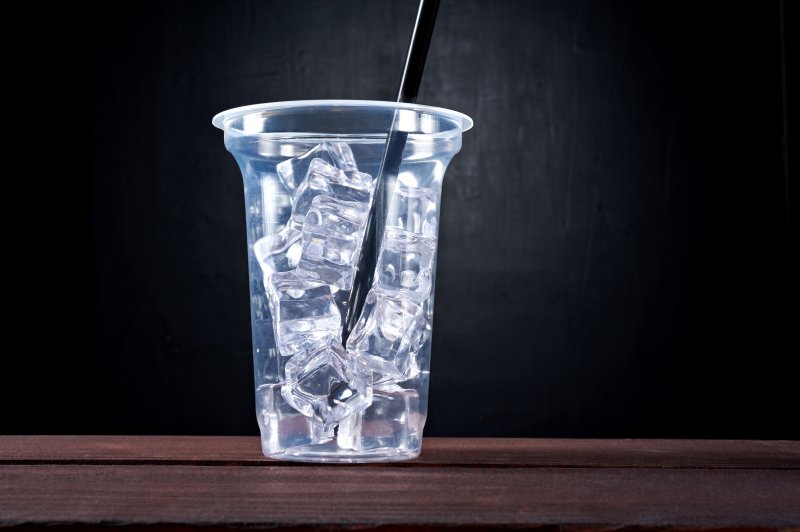
Whether it’s a full cup of specially designated chewing ice or the watered-down remnants of your movie theatre soda, ice is bad news for your teeth. One wrong crack can be enough to send you to the dentist in an emergency.
But why is that? Surely your teeth can stand up to a little ice, right? Continue reading to learn why chewing on crunchy ice can be a recipe for disaster.
Why Is Chewing Ice Bad for Your Teeth?
In general, ice is one of the hardest substances that people have found it “okay” to chew on. However, it can do a lot of damage to teeth. Here are some examples of how:
- Tooth Fractures – Ice is hard and can exert immense pressure on your teeth when you chew it. This pressure can lead to fractures, chips, or cracks in your teeth.
- Tooth Sensitivity – Chewing on ice can wear down tooth enamel over time, making your teeth more sensitive to hot and cold temperatures.
- Dental Fillings Damage – If you have dental fillings, particularly older ones, they can be damaged or dislodged by the force of chewing on ice.
- Jaw Strain – Chewing on hard substances like ice can strain your jaw muscles and temporomandibular joint, potentially leading to jaw pain.
- Orthodontic Issues – For individuals with braces or other orthodontic appliances, chewing on ice can damage brackets, wires, or bands, extending the treatment time.
- Risk of Infection – Ice from machines like in restaurants may not always be free from harmful bacteria, making it a potential source of infection when chewed.
What Can I Do to Break the Habit?
The first step to breaking any habit is to recognize you have one or identify the reasons why. Some people just occasionally chew on ice because it’s refreshing. Other times it can be a sign of a more serious condition such as anemia or pica—both conditions linked to ice chewing.
Here are some things you can do to wean yourself off the habit to chew:
- Melt The Ice – Instead of biting and chewing the ice, try letting it melt in your mouth instead.
- Avoid Using It – When ordering out, ask your waiter for no ice in your drink. While at home, chill your drinks in the fridge or freezer before consuming them.
- Use Thinner Ice – There are many options when it comes to ice. Instead of thick cubes, try switching to shaved or “slushy” ice. This ice is much thinner and still offers a gentle crunch.
- Find Alternative Crunch – If crunch is what you desire, then find something else to munch on. For instance, nothing beats fresh carrot sticks or apple slices for their crunch factor. In fact, these two foods are packed with vitamins, minerals, and fiber to strengthen your teeth.
With these tips, you’ll be able to beat the ice-crunching habit and maintain your oral health. If you fear that you may have already injured your teeth due to ice chewing, consult your dentist right away.
About the Author
Dr. John White became a dentist to combine his love of science and his love of people. After earning his dental degree from the University of North Carolina, Dr. White entered a two-year, post-doctoral residency program at Wake Forest University’s Baptist Hospital and Bowman Gray School of Medicine. After starting his practice, he furthered his education, eventually earning Mastership in the Academy of General Dentistry, an honor only held by 1% of all dentists in the US. To schedule an appointment at John White, DDS, call (828) 684-3020 or visit the website.
